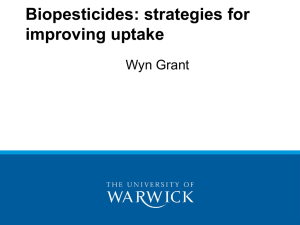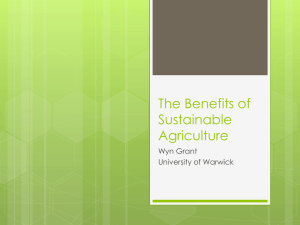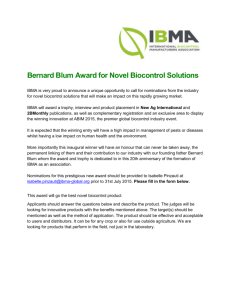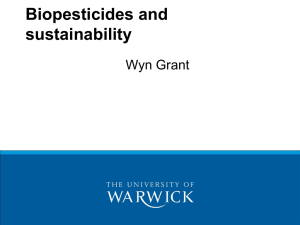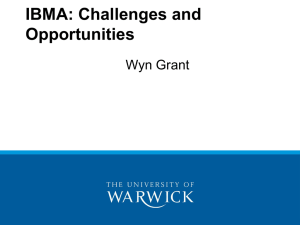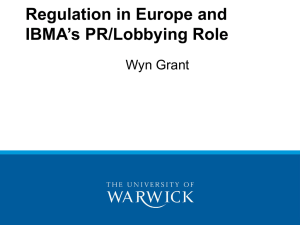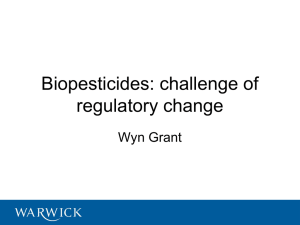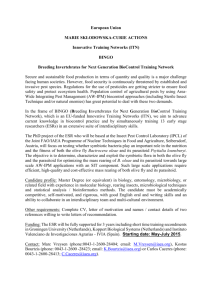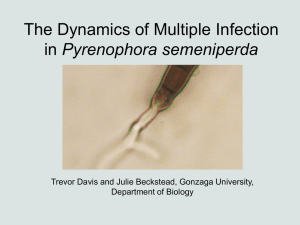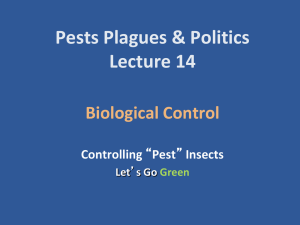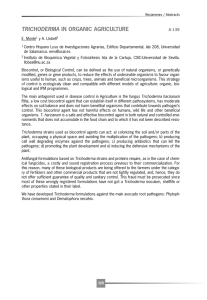10 years of progress in representing biocontrol Wyn Grant University of Warwick
advertisement
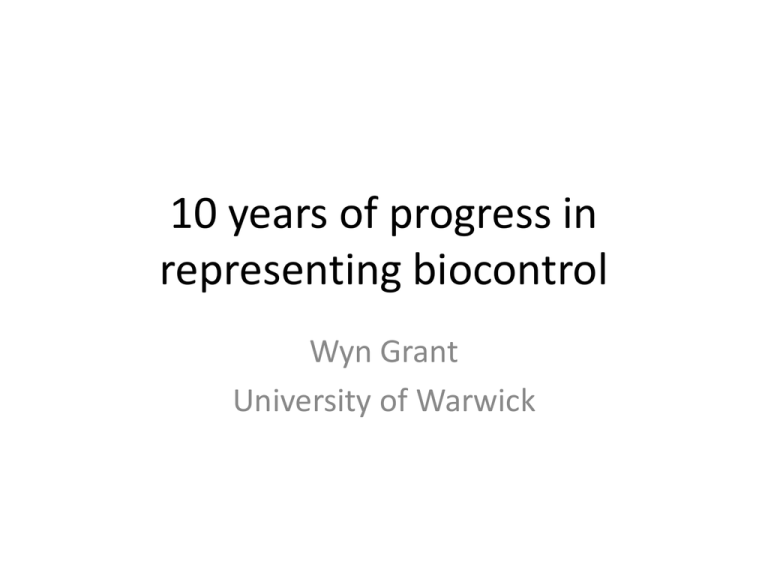
10 years of progress in representing biocontrol Wyn Grant University of Warwick Where we came from • Some people felt I was too critical of aspects of IBMA in the RELU programme • But it need to improve to get the important biocontrol message across – and it has • Great progress has been made but, as always, there is more to do and new challenges ahead • There is now a good organisational platform to meet those challenges 10 years ago • A lack of sophistication in relation to the task of representing the industry • Of course, some things were being achieved through hard work and dedication, but often a lack of planning and analysis • But the main skill of natural scientists is not understanding the complex political process of the EU (hard enough for me), it is developing new products Missed opportunities • The REBECA programme: http://www.rebecanet.de/?p=999 • There were some good discussions of the regulatory challenges and worthwhile outputs • But, speaking frankly, I think that the Commission was antagonised by unrealistic demands – final meeting Regulation 1107/2009 • Of course, there were positive aspects • Reduce the reliance of EU agriculture on traditional chemistry-based plant protection products as part of a broader drive towards IPM • As always, the devil is in the detail and the way in which implementation takes place Mixed progress • Restrict traditional products that are harmful to human health and environment • Facilitate registration and bringing to market of lower risk products • Biocontrol industry has experienced frustrations and delays leading to loss of innovative products • More effective pressure in first place? The challenge of the political agenda • It is always crowded – and even more so in recent years in the EU with the challenges of the eurozone crisis, migration etc. • Focus in environmental policy to climate change, especially in run up to Paris summit • Biocontrol has low profile with public – compare with organic - and there are limits to what can be done about that Coalition building • At the time of our project, many environmental groups were suspicious of biocontrol, often because they did not understand its potential • But now there has been effective coalition building with environmental groups and others – farmers, food industry etc. • Example of 4th EP symposium in November involving Greenpeace, PAN Europe etc. Improved structure • Office in Brussels which is an essential element of effective representation • Contact point for governmental and intergovernmental bodies • Has had a seat at the table at FAO, OECD negotiations • Generally more professional approach • Demand for products growing What more could be done? • Finding new ways of getting the message out both through conventional and social media • Deepening the relationships with other stakeholders and ensuring that there is effective coalition building • Seizing the window of opportunity which can appear when you least expect it. Yet challenges remain • Despite all the engagement and development of guidance the industry is still regulated by a disjointed regulation that is not fit for purpose for the needs of a growing industry • Still insufficient recognition by decisionmakers and opinion formers of the importance and potential of biocontrol
